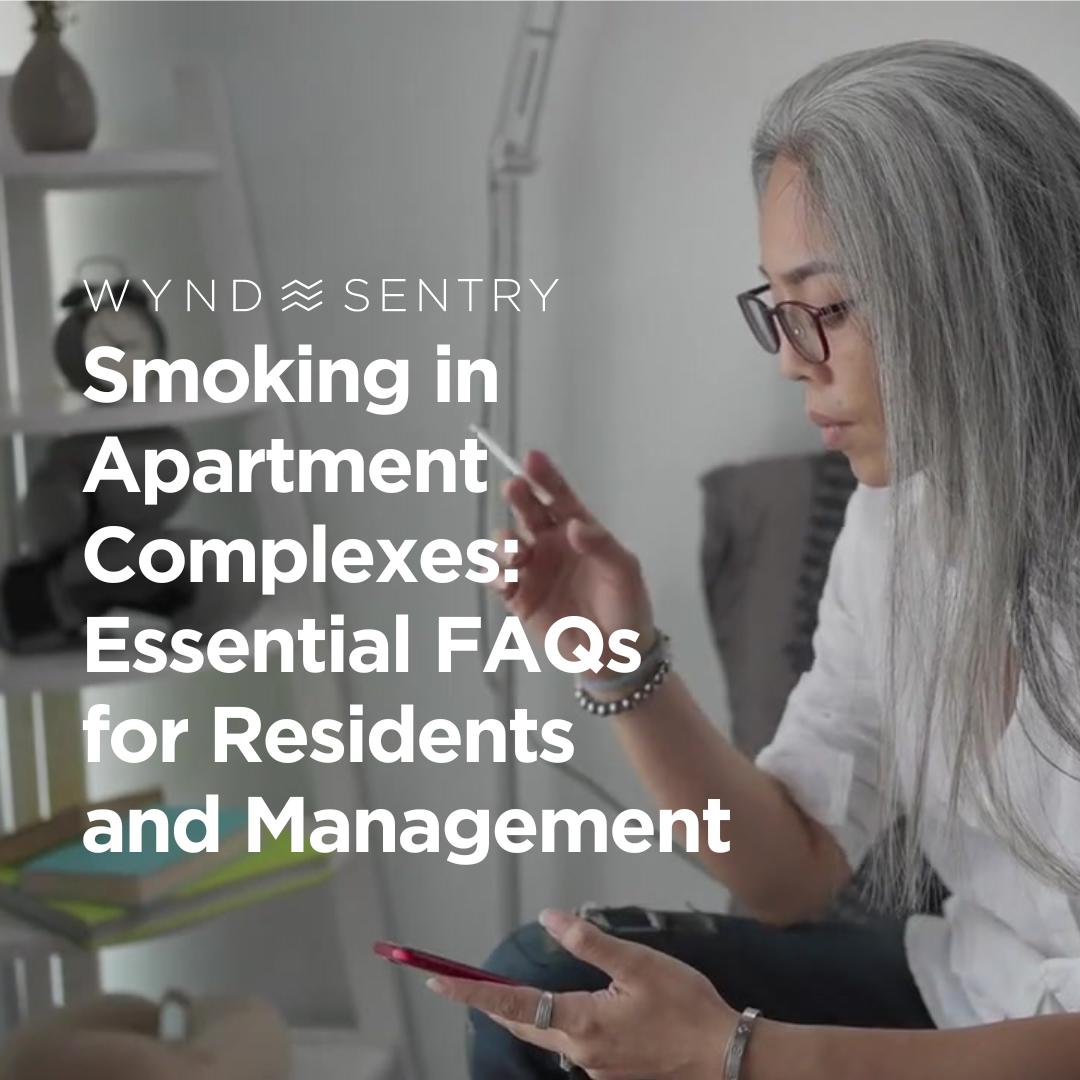
This site has limited support for your browser. We recommend switching to Edge, Chrome, Safari, or Firefox.
August 02, 2024 By Maranda Reyes

Navigating the complexities of smoking in apartment complexes requires a clear understanding of its multifaceted impacts on health, air quality, property value, and legal obligations. From the significant health risks posed by both secondhand and thirdhand smoke, including respiratory issues, cardiovascular diseases, and increased cancer risk, to the detrimental effects on indoor air quality and maintenance costs, smoking presents numerous challenges. Additionally, managing legal considerations, maintaining property value, and implementing effective smoke-free policies are crucial for both residents and property managers. This comprehensive FAQ addresses these critical issues, offering insights and practical solutions to foster a healthier and more harmonious living environment.
Answer: As property managers, it’s important to prioritize the health and well-being of your residents. Smoking in the complex poses significant health risks:
In addition to the immediate health effects of smoking, thirdhand smoke poses significant long-term health risks. This term refers to the residual toxins that cling to surfaces and linger in the environment long after smoking has ceased . These persistent chemicals continue to release harmful pollutants into the air and can settle on furniture, walls, and other surfaces. Prolonged exposure to these residues can lead to ongoing respiratory problems and an increased risk of cancer. Children are particularly vulnerable, as they are more likely to come into contact with contaminated surfaces and inhale these invisible pollutants, exacerbating their health risks over time.
Answer: Maintaining good indoor air quality is crucial for the comfort and health of your residents. Smoking significantly degrades air quality due to:
Addressing indoor air quality issues can be challenging, but advanced solutions like WYND Sentry have shown impressive results. In a recent example, a multi-family senior living community implemented WYND Sentry to tackle persistent smoke-related air quality problems . The system's real-time monitoring enabled quick responses to smoking concerns, resulting in significant improvements. Residents and management noted fewer respiratory complaints and a healthier environment thanks to WYND Sentry’s proactive alerts and detailed analytics.

For more information on how WYND Sentry can enhance air quality in your complex, visit WYND Sentry - Multi-Family or contact our team to schedule a demo.
Answer: Ensuring compliance with local laws and lease agreements is essential for smooth property management. Key legal aspects include:
Answer: Protecting the property value and managing maintenance costs effectively is a key concern. Smoking can:
The impact of smoking on property value and maintenance costs is both extensive and costly. Beyond the immediate physical damage such as burns and stains, smoking leads to significant long-term expenses related to cleaning and repair. Units affected by smoke require thorough and often costly remediation efforts, including extensive cleaning, repainting, and replacement of damaged materials. This not only results in direct financial outlays but also means these units may be unavailable for rent for extended periods, impacting rental income. Furthermore, properties that permit smoking often face higher insurance premiums, reflecting the increased risk of fire and other damages. Understanding these factors can help property managers make informed decisions about implementing and enforcing smoke-free policies, ultimately safeguarding their investment and ensuring a more attractive, maintainable living environment.
Answer: To maintain a safe and healthy living environment, we can:
Taking a comprehensive and proactive approach to managing smoking-related issues is essential for maintaining a healthy living environment. While implementing clear smoke-free policies, providing designated smoking areas, and ensuring proper ventilation are fundamental steps, integrating advanced monitoring systems like WYND Sentry can significantly enhance these efforts. By leveraging real-time air quality data and proactive alerts, property managers can identify and address smoke-related concerns before they escalate. This integrated approach not only supports effective enforcement of smoke-free policies but also helps prevent potential health risks and costly maintenance issues, ensuring a safer and more pleasant living space for all residents.
Answer: Residents can help us maintain a smoke-free environment by:
Residents who are facing persistent smoke issues can work directly with their property managers to explore how WYND Sentry can be integrated into their complex. For more detailed information and to start the process, residents and property managers can reach out to WYND for personalized support and solutions tailored to their specific needs.
Answer: Yes, implementing a smoke-free policy offers several benefits:
Addressing smoking in apartment complexes requires a multifaceted strategy to ensure both immediate and long-term benefits. By understanding the health risks, impact on indoor air quality, property value, and maintenance costs associated with smoking, property managers can implement more effective measures. Key actions include enforcing smoke-free policies, providing designated smoking areas, and maintaining proper ventilation. Integrating advanced solutions such as WYND Sentry can further enhance these efforts by offering real-time air quality monitoring and proactive alerts. This comprehensive approach helps in managing smoke-related issues more efficiently, reducing health risks, and minimizing maintenance costs, ultimately fostering a safer and more enjoyable living environment for all residents.
This FAQ aims to provide a thorough understanding of the various impacts of smoking in apartment complexes. By addressing these issues proactively, we can create a healthier, safer, and more pleasant living environment for all your residents.
For more information on WYND Sentry and how it can benefit your housing property, visit WYND Sentry - Multi-Family or connect with our team to Book a Demo .